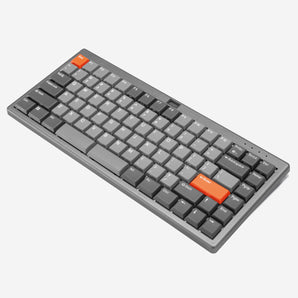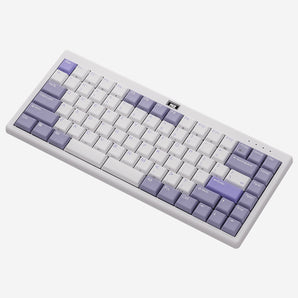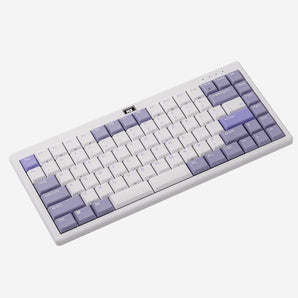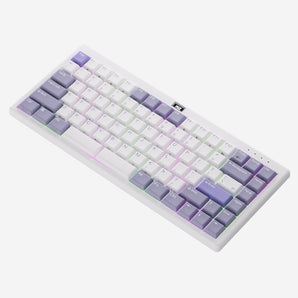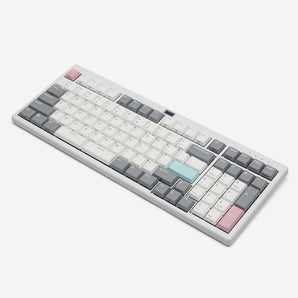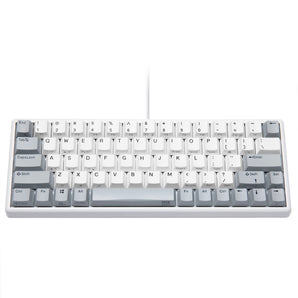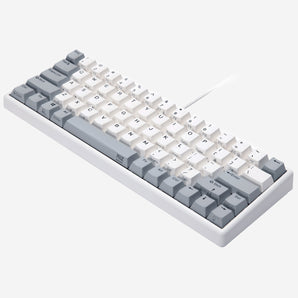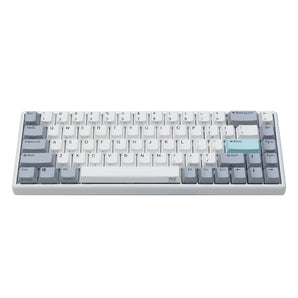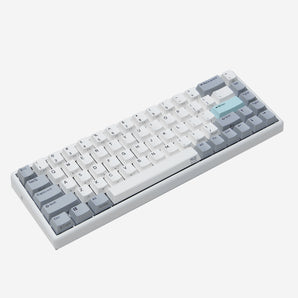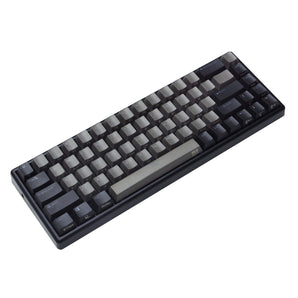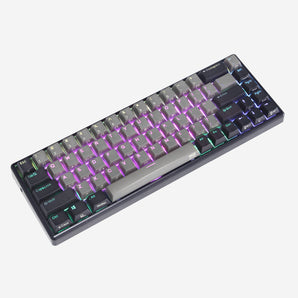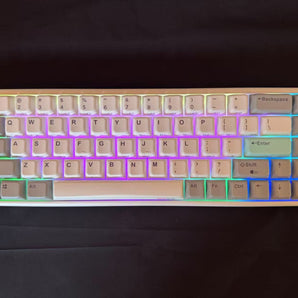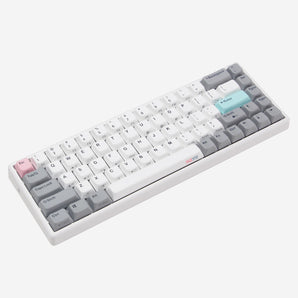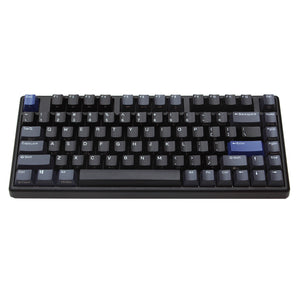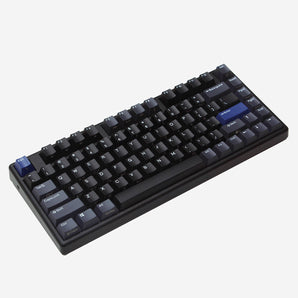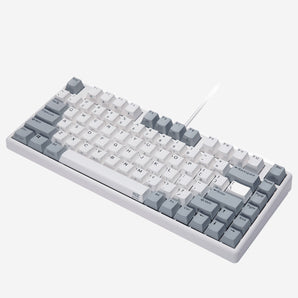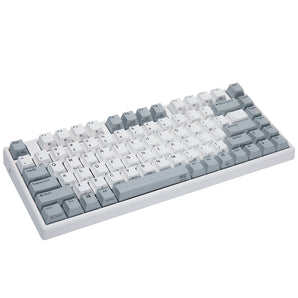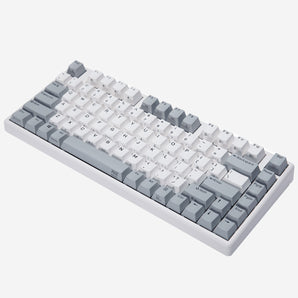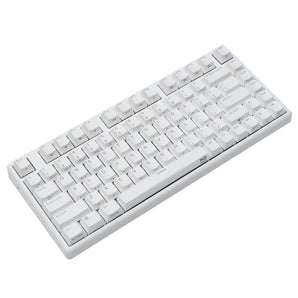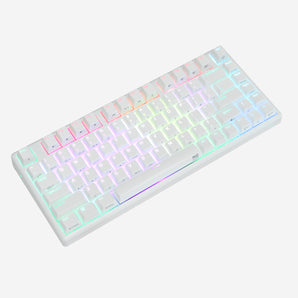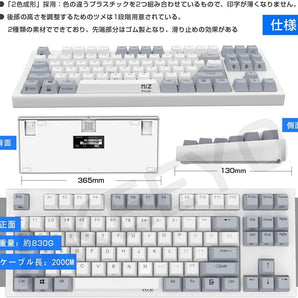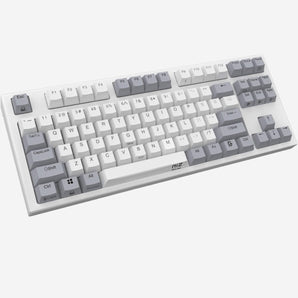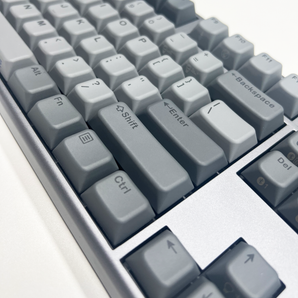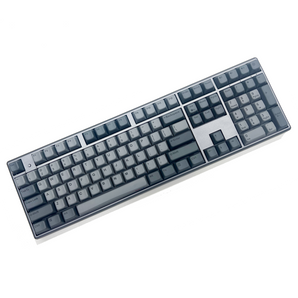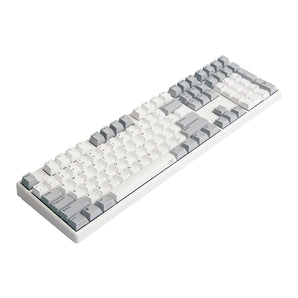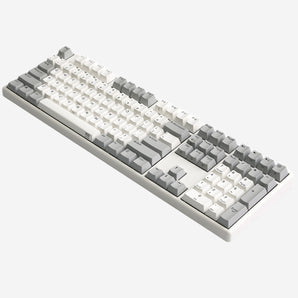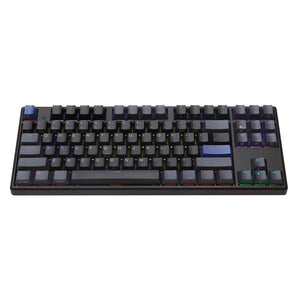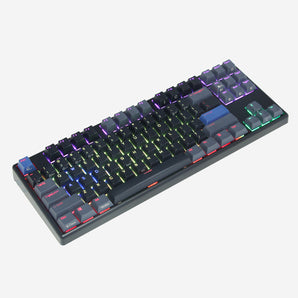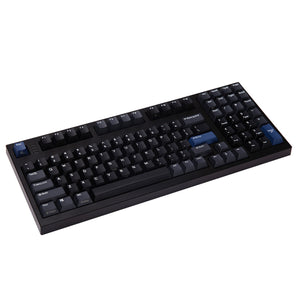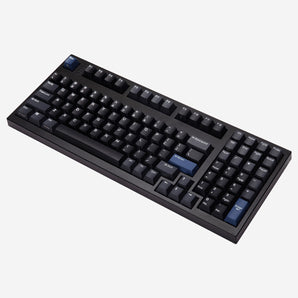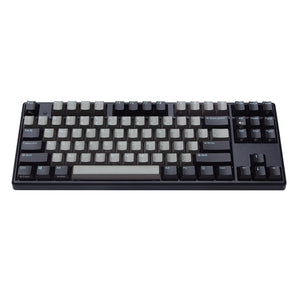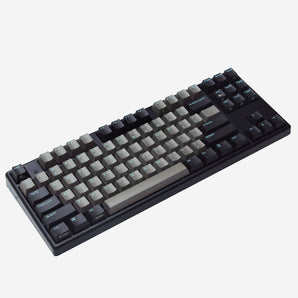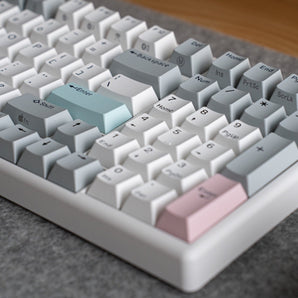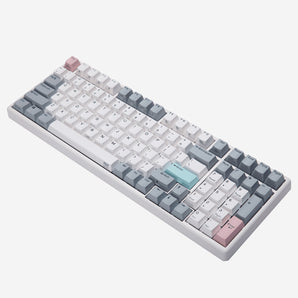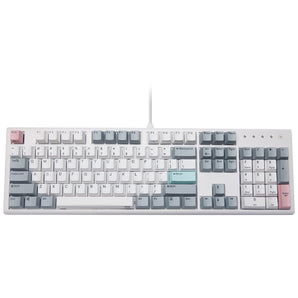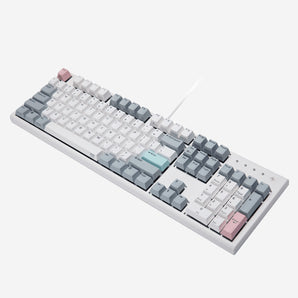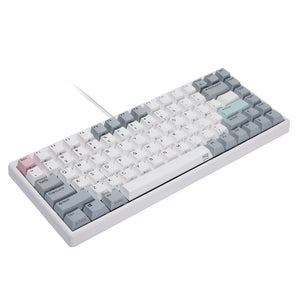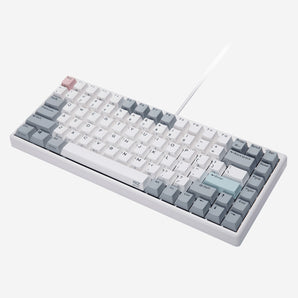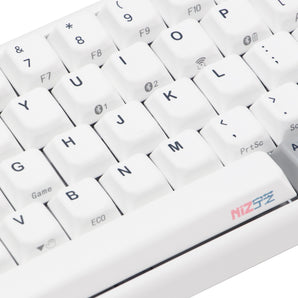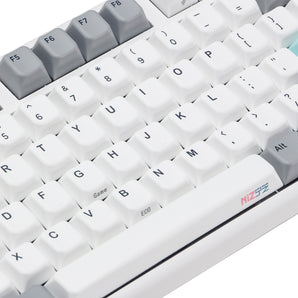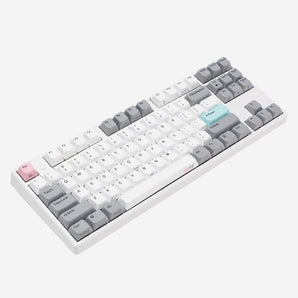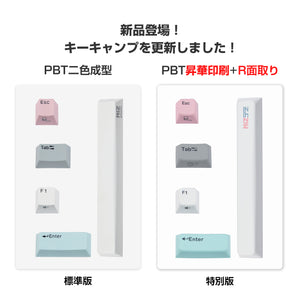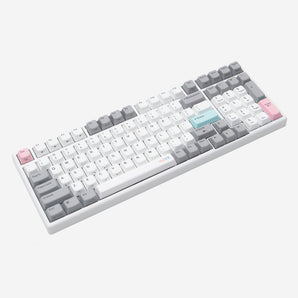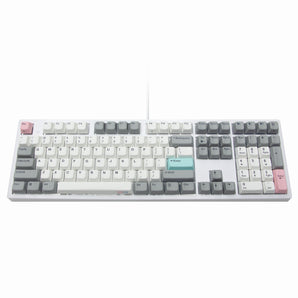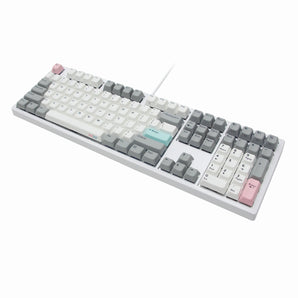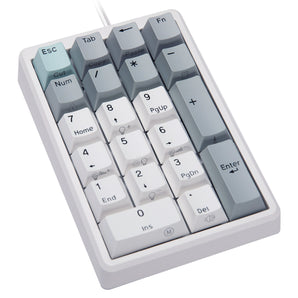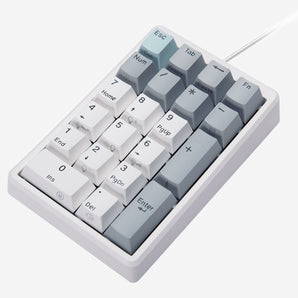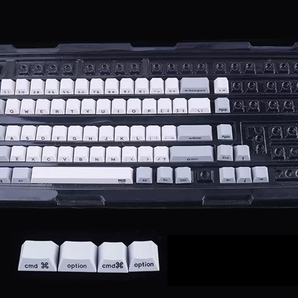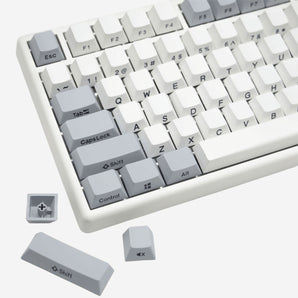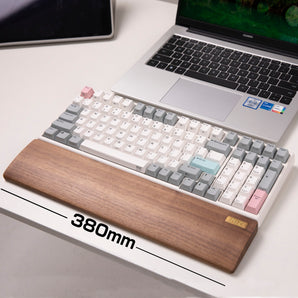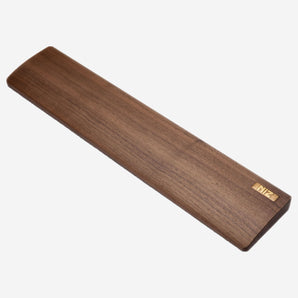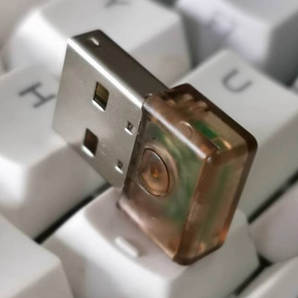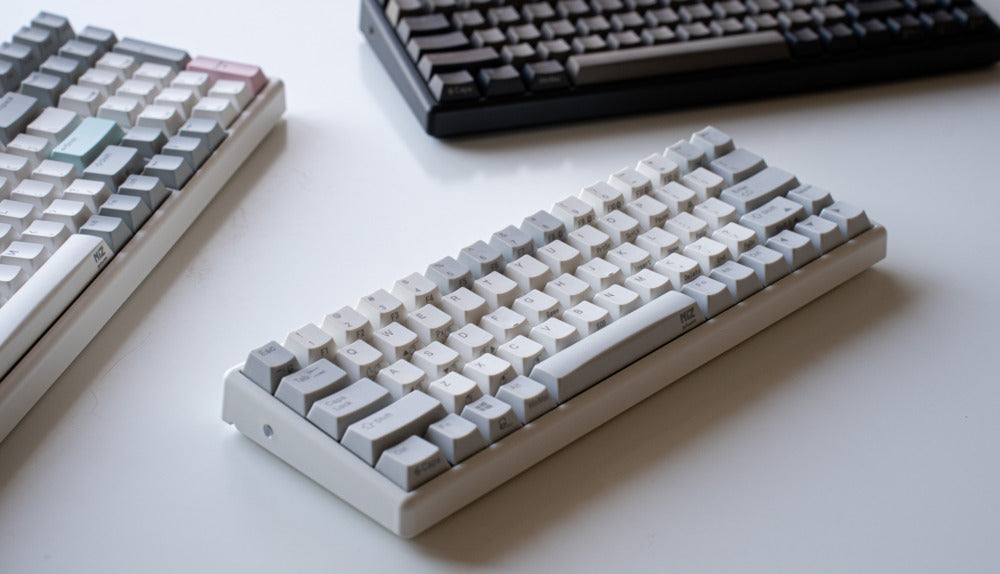The keyboard, it might be the technology you interact with the longest every day.
Replying to emails, debugging at 2 a.m., or getting headshots in Valorant.
With the right keyboard, you can prevent hand fatigue and enjoy a comfortable typing experience.
In the world of premium keyboards, two major forces exist:
**Electrostatic Capacitive Keyboard (EC)** and,mechanical keyboardIt is.
Preferences vary from person to person.
The mechanical enthusiasts praise custom switches and tactile feedback,
The capacitive type is praised for its smooth keystroke feel and long lifespan.
So, what exactly is different?
And which one suits your working style?
Choosing a keyboard cannot be explained merely by "switch preference."
The typing method, work environment, desired comfort (quietness, speed, fatigue resistance), and many other factors are involved.
in this guide, we will compare two types of keyboards based on the following aspects:
Each structure and what their differences imply
Key feel, sound, durability, fatigue during long-term use
Recommended for gamers, typists, and professional use
Why capacitive sensing (especially NiZ) is gaining attention
What is a mechanical keyboard?
A mechanical keyboard has a structure with physical switches under each key.
Pressing the key causes two pieces of metal to come into contact, generating an electrical signal.
Typical types of switches:
Clicky switches (e.g., Cherry MX Blue): a clicking sound and tactile feedback
Tactile switch (e.g., MX Brown): The sound is subdued with a slight step-like sensation.
Linear switch (e.g., MX Red): Smooth and uniform tactile feedback upon pressing
Strengths:
Customizability (switches and keycaps can be replaced)
High durability (key life of over 50 million keystrokes)
Robust feedback
Strong for gaming (deep actuation and high-speed response)
Weaknesses:
The noise is loud (even silent switches make some sound).
Hands get tired easily (many switches also have high actuation force).
Not suitable for quiet workplaces or shared spaces.
What is a Capacitive Keyboard?
Capacitive keyboards feature a "key feel similar to mechanical keyboards" while incorporating a structure that reduces wear and noise.
The internal structure is as follows:
spring + rubber dome under each key
instead of metal contactsCapacitive sensordetect input with
No debounce required, minimal wear, and long lifespan
Reason for popularity:
No metal contact and very little wear
Each press provides a uniform feel (no key wobble or variation).
The noise level is extremely low.
Resists fatigue and is ideal for long hours of operation.
NiZ has evolved further:
Adjustable actuation pressure
Hot-swappable spring support
Dual connection of Bluetooth+USB-C
Layout Customization Support
Comparison Table: Mechanical vs Capacitive
| Item | mechanical keyboard | Capacitive Keyboard |
|---|---|---|
| Detection Method | Metal contact | Capacitive sensor (non-contact) |
| Key feel | Diverse (Clicky, Tactile, Linear) | Smooth and cushioned |
| Sound | Medium to large | Very quiet to silent |
| Customizability | Extremely high | Medium level (Software/Spring replacement) |
| Lifespan | approximately 50 million times | More than 100 million times |
| Fatigue reduction | Normal | Extremely excellent |
| Usage | gaming, custom enthusiasts | typing, coding, office work |
| Average price | $50 to $200 and above | $120~$250 |
Difference in key feel
mechanical:
A wide range of switches are available to choose from, but there is some variation in quality.
The combination can result in the "best" outcome, but at times, it may also evoke a sense of hollowness or a feeling of being caught.
The degree of freedom is high, but adjustments are necessary to achieve the ideal feel.
Capacitive type:
Always a consistent and smooth keystroke feel
Less strain on the fingers
"No 'bottoming out' required, input reacts in the middle."
Optimal for long-duration input
Noise comparison: which is quieter?
The overwhelming victory of the capacitive type.
Mechanical keyboards have a loud clicking sound and a "clacky" noise when returning.
Capacitive type (NiZ, etc.) is almost silent. Only a gentle "ton" sound.
Perfect for quiet offices and late-night work.
Durability: Which one lasts longer?
Mechanical: Approximately 50 million cycles, variation in key feel may occur with long-term use.
Capacitive type: over 100 million cycles, minimal wear due to non-contact operation
The rubber dome is the only consumable part, but there are also models with replaceable parts.
For gaming purposes?
Mechanical:Geared towards FPS and MOBA, with high reset speed and responsiveness.
Capacitance type: RPG and non-competitive systems are well-supported, NiZ is adjustable and narrowing the gap.
strain on the hand: which is gentler?
For people who input for long periods of timeCapacitive type is overwhelmingly comfortable
Mechanical requires full press (45g~60g) mandatory
Capacitive type allows input with a light touch, reduces fatigue, and decreases mistyping.
Customizability and layout
mechanical:
Rich custom culture (lube, keycap, case swapping, etc.)
Many DIY kits
Capacitive type:
Customizability is modest.
Some models allow for spring or dome replacement.
NiZ is a layout-programmable product design focused on connectivity and keypress feel.
Which one to choose?
If you choose mechanical:
I want to customize it myself.
Getting serious about games
I like the clicky feel and variety.
If choosing a capacitive type:
Long hours of typing and coding
Silence is important.
focusing on comfort and practicality
I want a high-performance model with wireless and adjustment functions.
Finally
Mechanical keyboards are fun. But not everyone wants to spend time on key lubrication or customization.
If you're looking for a keyboard that you can use comfortably and consistently every day, the capacitive type is an option worth serious consideration.
A brand like NiZ offers a keypress feel comparable to Topre while featuring modern functionalities and being more affordable.
It might not be flashy. But,Reliable, quiet, and comfortable typing may captivate your fingertips.

